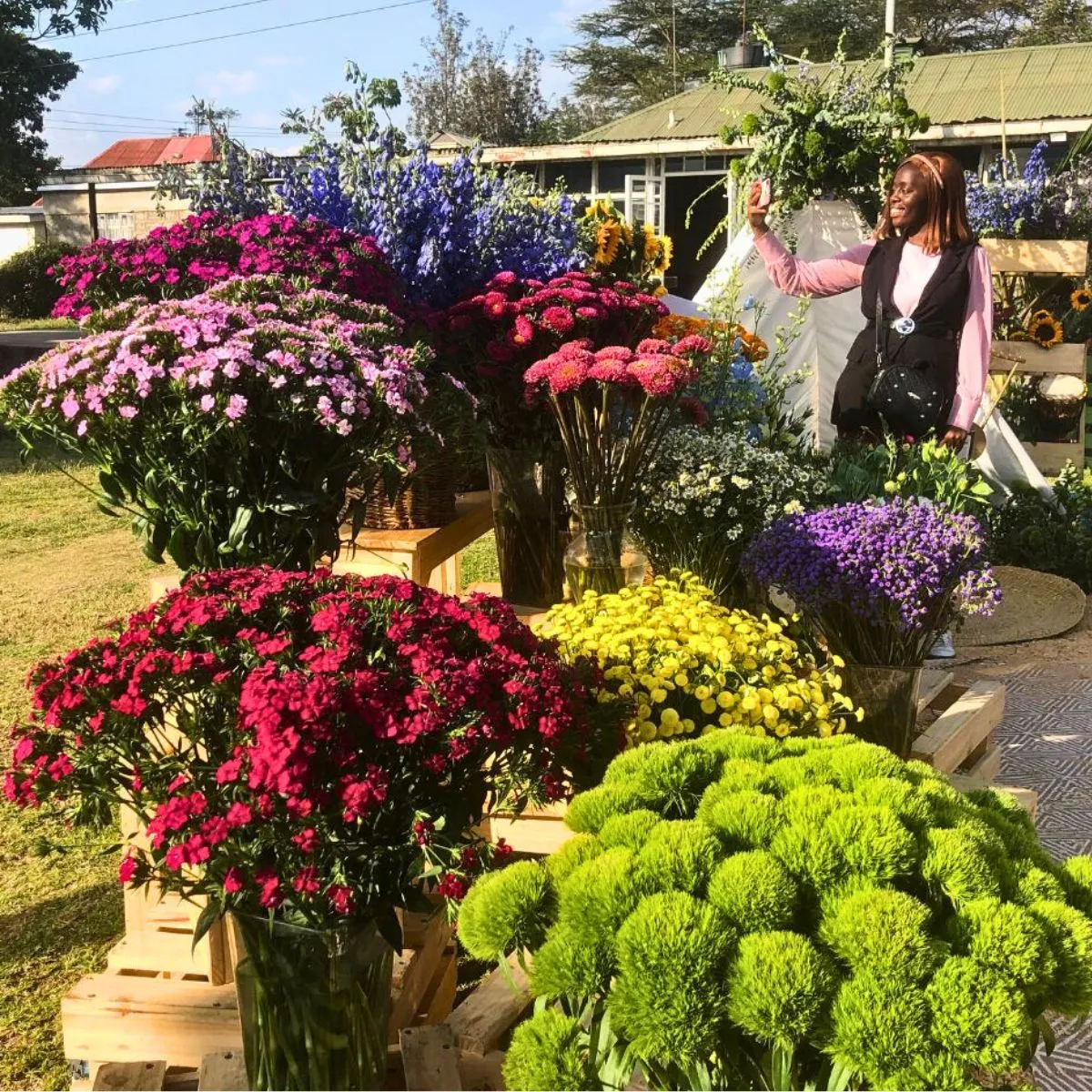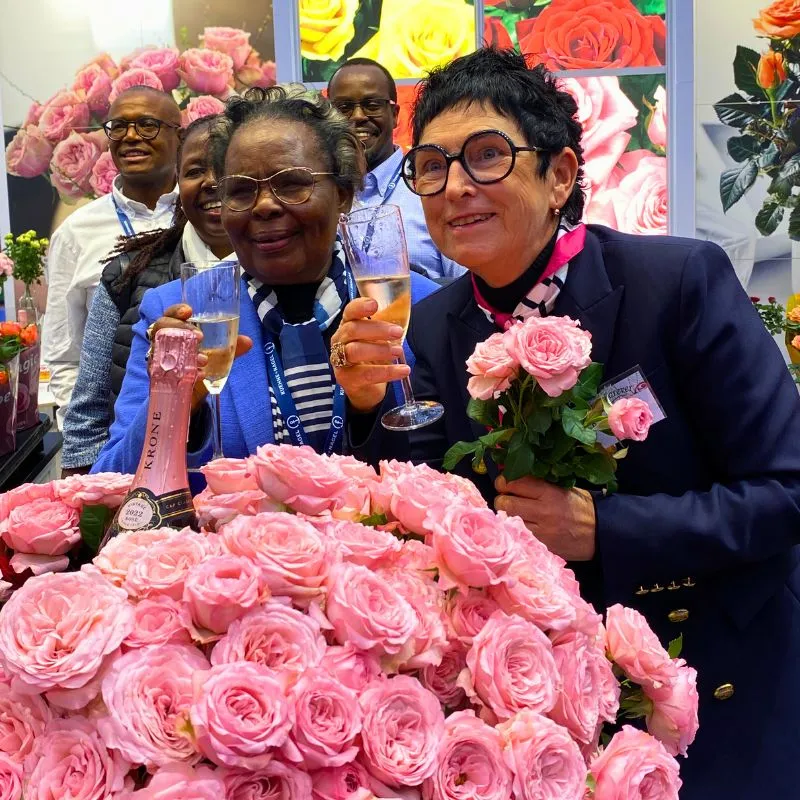It was not easy to find a successor for Father Dré as far as his breeding activities were concerned. His son Harry (‘Junior’) had all the knowledge, but lacked the creativity, ambition and leadership qualities to manage the team of six working in the greenhouse and the various selectors coming in irregularly and all finding their selections the best. After a year of presenting candidates, the headhunter that was hired for the job introduced Klaus van Winkel. In the belief that creative persons are eccentric and this one also fitting in the budget, Klaus was hired. Greasy hair, thick stained glasses, two alternating lumberjack shirts, no matter what temperature, and permanent slippers could be lived with. But the endless discussions and stubbornness in the end proved too much for the selectors. Klaus had an opinion on anything. In fact, some of his ideas were brilliant, but he lacked tact and the right persuasiveness to get them across.
Klaus spent nine years at the Agricultural University in Wageningen, but never graduated. His prime interest was with the University bar, which he ran as a barkeeper. He skipped early morning classes, but his professors did not mind. In his absence they could make progress with the curriculum.
His greenhouse team loved him. “Fucking, fucking, fucking all day,” he would shout through the greenhouse. “I am the luckiest person on earth. I made my hobby into my work. Long live the seeds! Fucking all day!” And even in his spare time he would be pollinating in the little mess of a glasshouse behind his little terrace house. He would regularly bring in results of his homely experiments: white cucumbers and yellow tomatoes, lacking the right taste or filled with pips.
His wife Sien, re-named ‘red’ Sien to prevent confusion with Mother Sien, was easy, very easy, raising their three children single-handedly. Their eldest daughter was crippled at birth and had been in and out of hospitals for the first thirteen years of her life. Therefore, Klaus’ salary demands were modest: he wished to stay within the limits of the healthcare system.
Before long, ‘Seedy Klaus’ or simply ‘Seedy’ would be collecting rose varieties and seeds from any place he would visit, professionally or privately. Seedy made no difference between hobby and work.
Father Dré, Uncle Piet, Maurice and Sjef formally acted as the company’s management, but in fact, Sjef ruled. Sjef also considered himself an artist and therefore Seedy was allowed ten per cent room in the breeding program for experimentation. For the remaining ninety per cent Seedy was surprisingly obedient. When instructed to focus on intermediate varieties with slim, tall heads, to allow for a higher packing rate for African and Latin producers, two years later in spring they would come out in the seedlings. Seedy and Junior were a perfect couple. Junior did not say much but was a walking database for varieties and variety characteristics and kept a physical one at the same time in piles of scribblers, using pencil and eraser in the breeding tradition. Father Dré had always followed his instincts in breeding and his mood in selecting, but fortunately, Junior had always kept track of all the crossings and results.
To recuperate the market position in the pot roses, Seedy was instructed to produce seedlings that had bright colors, a minimum of five flowers per plant, making a total of fifteen per pot of three plants, that would slowly open at the consumers’ and last for two weeks. It had taken Father Dré some fifteen years to get from triploid to diploid in miniature roses, at the time essential to make the next step in the breeding, but it only took Seedy and Junior two years to come up with the first of the Perfecta® series. Seedy was not instructed that these varieties should also be easy to produce on a large mechanized scale. One Danish producer managed, but our own Pot Rose Division in Nieuwveen was unable to come up with a decent product, so, in the end, the Perfecta® line never got beyond two varieties. Likewise, the slim headed intermediates never caught on, as big, round headed varieties became fashionable. The commercial selectors complained a lot about the breeding, as nothing ever came out that they could sell.
To widen this gap between the two disciplines, Seedy would only show his experimental program to colleagues he could get along with. As these seedlings would not be in Sections IV or V, but in a tunnel further down the land, this activity was literally outside the view and vision of the management. Sometimes, on a Friday afternoon, with the traditional case of weekend beer emptied by the greenhouse boys, Peli usually taking half, Seedy would take me to the tunnel.
After several visits, I would learn to see through the mess and find varieties. Seedy seemed to be very keen on some wild varieties that would only flower every other year and a collection of what he called “moss roses”. These had beautiful colors and flower shapes, but were completely covered in thorns, from head to toe. The top prickles were soft and a little sticky when touched and left a nice smell on the finger tops. The other thorns were horrendous. I could not see any use for these other than the sadomasochistic market. “I want to lay you down in a bed of roses” came to my head, but for sure John Bon Jovi did not write his ballad for masochists, nor moss roses. However, the line is followed by “for tonight I sleep on a bed of nails”.







